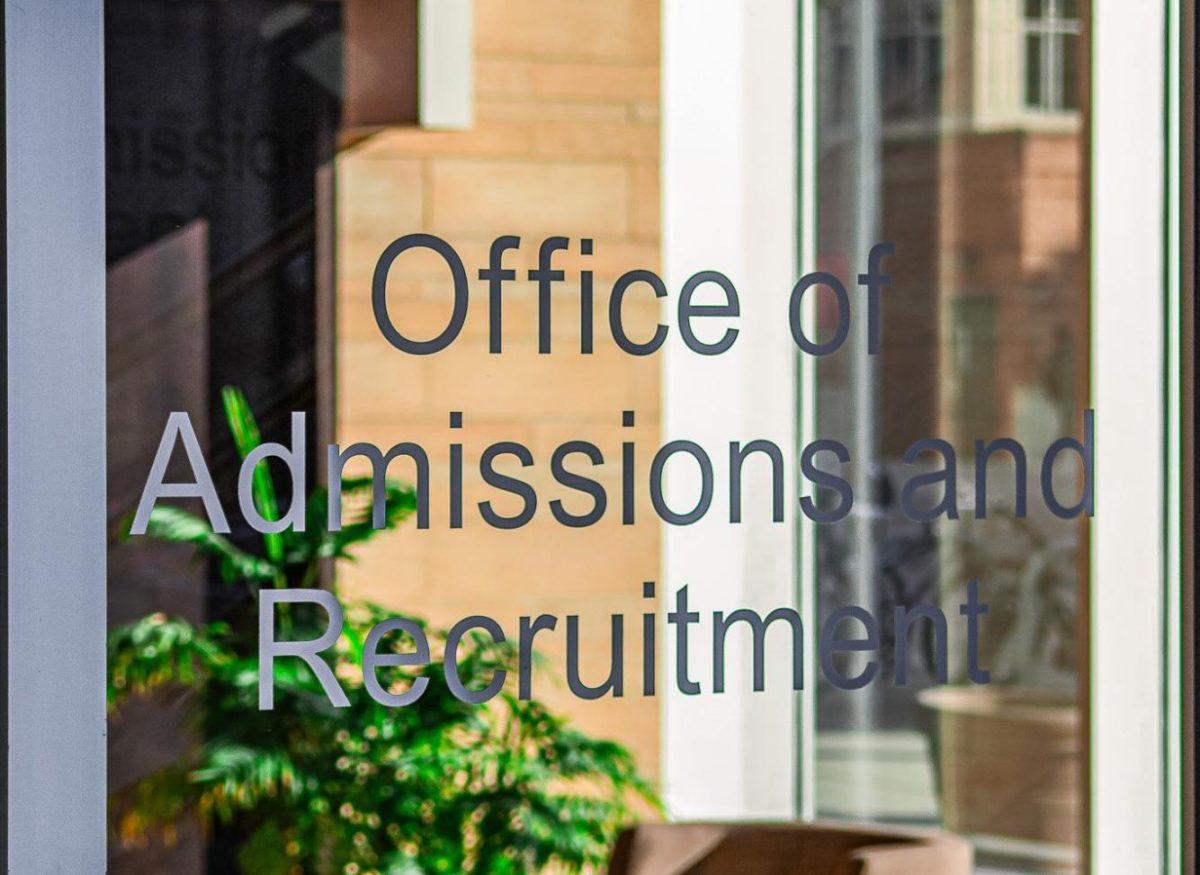Dartmouth College and Yale University announced in February the reinstatement of standardized test admissions requirements, and Brown University followed suit in March, according to the universities’ websites. Test-optional policies gained popularity after College Board canceled SAT and ACT testing when the pandemic started in March 2020, according to Education Week.
Likewise, in December 2021, the University of Wisconsin–Madison waived the standardized test requirement for all incoming classes through the spring 2025 term, according to the UW Office of Admissions website.
The COVID-19 pandemic has posed significant challenges for many students looking to take the SAT or ACT, UW vice provost for enrollment management Derek Kindle said in an August 2020 statement.
“…we view this as a unique opportunity to better understand, through rigorous research, the impact of standardized tests on our admissions process and whether it makes sense to continue requiring them,” Kindle said.
Starting with the 2025 high school graduating class, Wisconsin students who opt-in and meet certain requirements will be accepted to participating UW System campuses without the need to submit a standardized test score under the Direct Admit Wisconsin program, which UW–Madison does not participate in, according to the Universties of Wisconsin website.
But, under Wisconsin Act 95, applicants ranking in the top 5% of their high school class will be guaranteed admission to UW–Madison, according to previous reporting from The Badger Herald.
Students from higher-income families are more likely to have access to expensive test prep courses, FairTest Executive Director Harry Feder said. FairTest is a national organization working to end the misuse of standardized tests, according to its website.
Further, the first digital SAT was administered March 9, potentially creating issues for under-resourced areas without Wi-Fi or computer access, Feder said.
“These tests have historically been designed as gatekeepers for the dominant class and culture into selective institutions,” Feder said.
But disadvantaged students may lower their own admissions chances by choosing not to submit standardized test scores, Dartmouth professor of economics Bruce Sacerdote said. Disadvantaged students’ test scores may be impressive compared with those from their neighborhood or school, Sacerdote said.
Additionally, standardized test scores are less biased toward specific demographics or income levels than other evaluations, Sacerdote said.
“SATs for Dartmouth are far and away the strongest predictor of academic success,” Sacerdote said. “Other things like extracurriculars and, in particular, guidance counselor recommendations, don’t much predict college academic success, but they are heavily tilted towards higher income students.”
Students from varying socioeconomic backgrounds but similar SAT or ACT scores achieve similar levels of academic success at Ivy colleges, Brown University professor of economics John Friedman said.
Students from low-income backgrounds are less likely to take the SAT or ACT and typically score lower, but research suggests these disparities reflect underlying inequities in environmental conditions, rather than biases in the tests themselves, Friedman said.
“Test optional policies might seem like they add flexibility, but it may actually add another layer of strategy … one that families and students from higher income backgrounds are more likely to be able to exploit,” Friedman said.
A study co-authored by Friedman and Sacerdote suggests standardized test scores are stronger predictors of academic success in college than high school grades.
Results show students from Ivy Plus universities who scored perfectly on the SAT or ACT on average achieves a first-year college GPA .43 points higher than those who scored a 1200 or 25 on the SAT and ACT, respectively, Friedman said. On the other hand, a similarly sized increase in high school GPA correlates with a college GPA increase of .10, Friedman said.
It is important universities study the value of test scores in their own setting, Friedman said. One could conduct a such a study at UW using only data from the university, Friedman said.
Despite this research, historically, the best measure of student success in college is high school grades, Feder said. If other factors like gender, legacy or minority status are included in the Opportunity Insights data, the predictive power of the SAT is cut by more than a third, according to a FairTest report.
“We could rethink admissions,” Feder said. “Instead of relying on the College Board and the ACT to provide this instrument that has now been reduced to two hours of testing, that is, a mere snapshot in time, as opposed to grades which are a record of lots of things over time.”
At the University of California system, SAT and ACT scores predict less than 2% of the variance in student performance at the college level, according to a 2023 study by The Campaign for College Opportunity.
Similarly, a study from Educational Researcher reported ACT scores correlate much less to college graduation rates than high school GPA.
Institutions will likely not continue to widely reinstate test scores requirements in the future, Feder said. These schools reinstated the policy not necessarily based on the new data but more likely in response to a large volume of applicants or other factors.
Standardized test scores should only be used as one part of a holistic admissions process, UW professor of education Taylor Odle said in an email statement to The Badger Herald. A student’s grades, courses, essays, recommendations and other materials help provide a holistic review of each applicant, according to UW’s Office of Admissions website.
“If an institution practices holistic admission, then eliminating test scores from consideration could reduce their ability to holistically judge an applicant’s qualifications and potential — by removing one piece of the puzzle they can examine,” Odle said.



